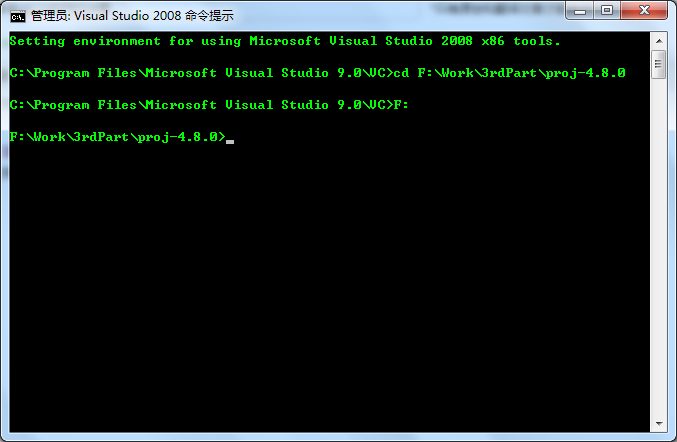异步任务利器Celery(二)在django项目中使用Celery
Celery 4.0支持django1.8及以上的版本,低于1.8的项目使用Celery 3.1。
一个django项目的组织如下:
- proj/
- manage.py
- proj/
- __init__.py
- settings.py
- urls.py
首先建立proj/proj/celery.py文件:
from __future__ import absolute_import, unicode_literals
import os
from celery import Celery
# set the default Django settings module for the 'celery' program.
os.environ.setdefault('DJANGO_SETTINGS_MODULE', 'proj.settings')
app = Celery('proj')
# Using a string here means the worker doesn't have to serialize
# the configuration object to child processes.
# - namespace='CELERY' means all celery-related configuration keys
# should have a `CELERY_` prefix.
app.config_from_object('django.conf:settings', namespace='CELERY')
# Load task modules from all registered Django app configs.
app.autodiscover_tasks()
@app.task(bind=True)
def debug_task(self):
print('Request: {0!r}'.format(self.request))
然后要保证django项目启动时上述的app被载入,修改proj/proj/__init__.py文件:
from __future__ import absolute_import, unicode_literals
# This will make sure the app is always imported when
# Django starts so that shared_task will use this app.
from .celery import app as celery_app
__all__ = ['celery_app']
现在就可以在INSTALLED_APPS中的app下建立tasks.py文件啦:
- app1/
- tasks.py
- models.py
- app2/
- tasks.py
- models.py
比如:
# Create your tasks here
from __future__ import absolute_import, unicode_literals
from celery import shared_task
@shared_task
def add(x, y):
return x + y
@shared_task
def mul(x, y):
return x * y
@shared_task
def xsum(numbers):
return sum(numbers)
在views中调用这些tasks即可异步运行。
如果使用Redis作为broker,在settings.py中添加:
CELERY_BROKER_URL = 'redis://localhost:6379/0'可以使用Django ORM/Cache作为储存backend。
下载库:
$ pip install django-celery-results
设定settings.py:
INSTALLED_APPS = (
...,
'django_celery_results',
)
建立数据表:
$ python manage.py migrate django_celery_results
在settings.py中添加Celery设置:
CELERY_RESULT_BACKEND = 'django-db'
CELERY_RESULT_BACKEND = 'django-cache'
启动:
$ celery -A proj worker -l info
可以在python manage.py shell中调用:
$ python manage.py shell
Python 2.7.12 (default, Nov 19 2016, 06:48:10)
[GCC 5.4.0 20160609] on linux2
Type "help", "copyright", "credits" or "license" for more information.
(InteractiveConsole)
>>> from app1.tasks import add
>>> add.delay(3,4)
<AsyncResult: a9abab6d-b7a9-47e6-8c09-ec284948449f>
celery日志:
[2017-09-14 00:09:41,432: INFO/ForkPoolWorker-1] Task urldata.tasks.add[38af760e-ed6c-48f8-b77c-d67bade8d6b8] succeeded in 0.00782653002534s: 7
官方一个完整的例子:https://github.com/celery/celery/tree/master/examples/django/
官方文档还有一个异步审查用户上传评论的例子。
blog/models.py:
from django.db import models
from django.utils.translation import ugettext_lazy as _
class Comment(models.Model):
name = models.CharField(_('name'), max_length=64)
email_address = models.EmailField(_('email address'))
homepage = models.URLField(_('home page'),
blank=True, verify_exists=False)
comment = models.TextField(_('comment'))
pub_date = models.DateTimeField(_('Published date'),
editable=False, auto_add_now=True)
is_spam = models.BooleanField(_('spam?'),
default=False, editable=False)
class Meta:
verbose_name = _('comment')
verbose_name_plural = _('comments')
在views中先保存评论,同时调用celery异步审核。
blog/views.py:
from django import forms
from django.http import HttpResponseRedirect
from django.template.context import RequestContext
from django.shortcuts import get_object_or_404, render_to_response
from blog import tasks
from blog.models import Comment
class CommentForm(forms.ModelForm):
class Meta:
model = Comment
def add_comment(request, slug, template_name='comments/create.html'):
post = get_object_or_404(Entry, slug=slug)
remote_addr = request.META.get('REMOTE_ADDR')
if request.method == 'post':
form = CommentForm(request.POST, request.FILES)
if form.is_valid():
comment = form.save()
# Check spam asynchronously.
tasks.spam_filter.delay(comment_id=comment.id,
remote_addr=remote_addr)
return HttpResponseRedirect(post.get_absolute_url())
else:
form = CommentForm()
context = RequestContext(request, {'form': form})
return render_to_response(template_name, context_instance=context)
tasks如下:
blog/tasks.py
from celery import Celery
from akismet import Akismet
from django.core.exceptions import ImproperlyConfigured
from django.contrib.sites.models import Site
from blog.models import Comment
app = Celery(broker='amqp://')
@app.task
def spam_filter(comment_id, remote_addr=None):
logger = spam_filter.get_logger()
logger.info('Running spam filter for comment %s', comment_id)
comment = Comment.objects.get(pk=comment_id)
current_domain = Site.objects.get_current().domain
akismet = Akismet(settings.AKISMET_KEY, 'http://{0}'.format(domain))
if not akismet.verify_key():
raise ImproperlyConfigured('Invalid AKISMET_KEY')
is_spam = akismet.comment_check(user_ip=remote_addr,
comment_content=comment.comment,
comment_author=comment.name,
comment_author_email=comment.email_address)
if is_spam:
comment.is_spam = True
comment.save()
return is_spam
转载自:https://blog.csdn.net/linux12a/article/details/77980795



